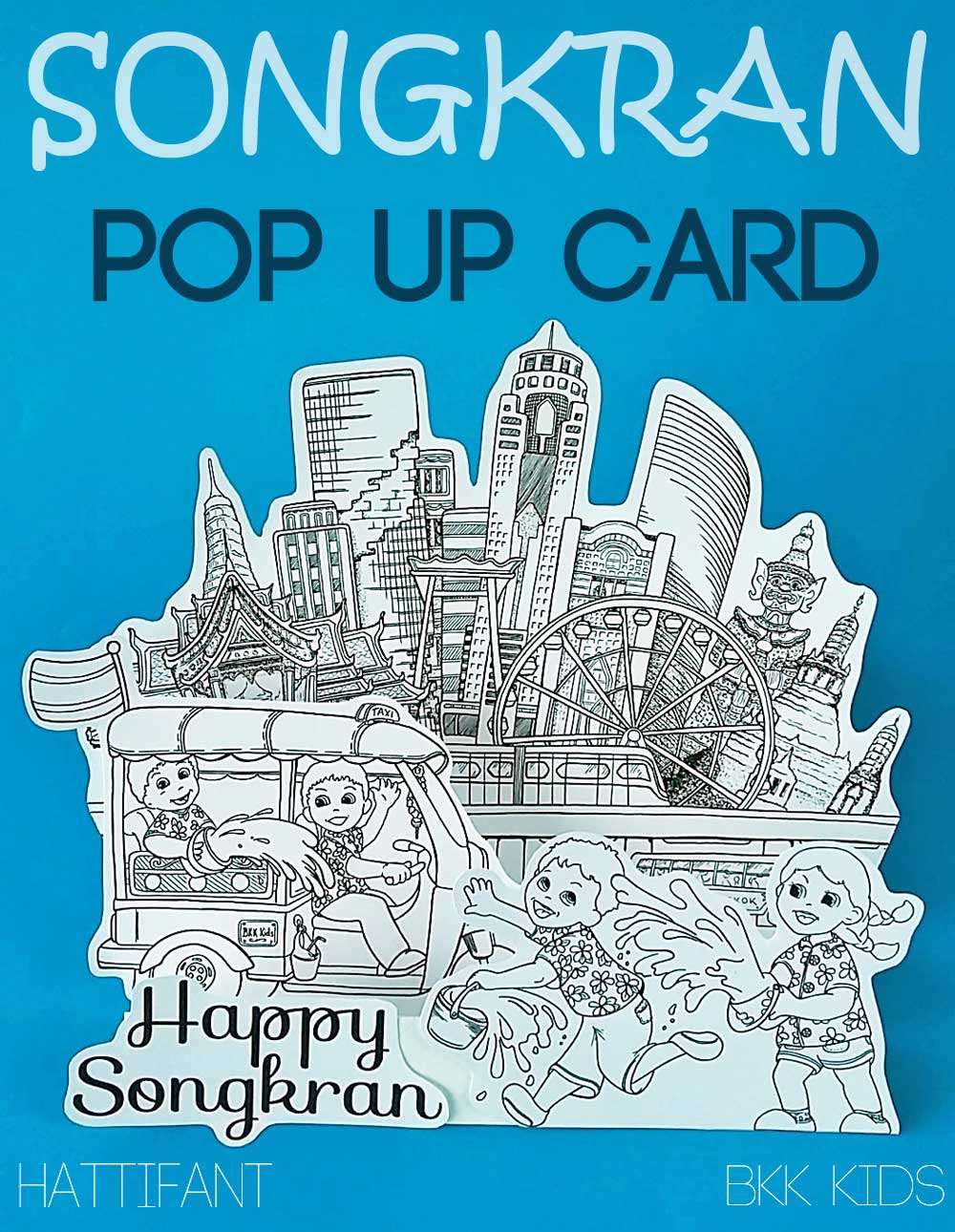“Great lesson today! Can you do Saturday next week?”
“Hmm, Saturday might be difficult because I already have basketball, ballet, piano and golf. Oh, and English.”
This is the answer from my 11-year-old student (who incidentally already speaks perfect English). I know better than to ask for another time on Sunday: Thai dance and maths won’t learn themselves! Yet this is not the most hectic schedule I have encountered. I used to coach two sisters for an hour each every day, after their barely awake mother zoomed them straight over from school. Afterwards, we’d grab dinner together and the kids did their homework whilst their mum shoved spoonfuls down them, lest they should pause from doing sums to feed themselves. Needless to say, this arrangement didn’t last. A new, even more demanding school meant my classes had to give way to extra Chinese, Maths and swimming lessons. The girls are already trilingual but their mum is convinced they are falling behind their classmates and frets about them having to repeat this school year. The kids are four and six.
What saddens me most is the effect this has on the girls. The fuss around these extra activities is teaching them more than how to solve equations or play Mozart. They are also learning to worry, compare themselves to others, and feel ‘not good enough’. They are learning that ‘busy’ equals ‘respect-worthy’ and exhaustion is a sign of accomplishment. The irony is that multiple studies show cramming in more lessons from earlier ages has no advantage to children’s learning rates. Conversely, it could be detrimental.

The Power of Play
It may be a no-brainer (pardon the pun) that kids prefer to play than sit behind a desk, but learning and play needn’t be mutually exclusive. In “The Power of Play”, Dr Rachel White, researcher in Developmental Psychology, concludes “play is learning…play benefits cognitive, social, emotional, and physical development.” And “In an age where play is under siege in many educational circles, promoting opportunities for children to learn through playful contexts could not be more important.” Sometimes we just need to Let Them Play.
One country that has taken the spotlight for excellence and forward thinking in education is Finland. Finnish students consistently rank highly in PISA tests, a global assessment of 15 year olds’ education levels. Whilst test-crazed Singapore has a higher share of the world’s top students, its elitism means the gold-star students at the top come at the price of those left at the bottom. By contrast, Finnish schools are equally good across the board. It may have fewer test-topping whizz-kids, but all its children are taught to an equally high standard. No one is left behind.
Finland also has one of the highest levels of student wellbeing. The secret? Less school, less homework and fewer tests. The 2015 PISA results should be enough to put any parent off upping the school pressure, when you consider the high price Singapore’s test results come at.

Student Well-Being
It is no wonder that in the 2017 Global Education Report, Singaporean students said what would most improve their education system would be “No standardized testing”.
Korea, another chart topper in exams, also shows worryingly low levels of student life-satisfaction and high student anxiety.
Whilst Finland is rated the 5th happiest country this year, South Korea comes in at 55th (Thailand is at 32). It also has one of the highest youth suicide rates in the world. In Korea it is the norm for students to study late into the night (or morning!) after a full 8.30 to 4.30pm day at school. Study centres are crammed with students from 5pm to midnight or even later. And whilst Korea tops the 2017 World Top 20 Education Poll, Finland is right up there at number 3. So with so little difference in the charts, is all that stress worth it?
Finnish kids do not start school until age seven and typically have 5 hours of classes or fewer per day. They (and their teachers) also have at least 15 minutes break time for every 45 minutes of classroom learning. Shouldn’t that mean loads more homework? Nope: Finns have the least amount of homework in the world. They typically spend just 30 minutes or less on unfinished classwork. But won’t they fail all their exams with so little study? Nope again: they don’t have exams.
Finnish schools have very few formal tests, no standardised tests and the only formal exams are sat right at the end of compulsory education, at age 16. The result? Finns are among the smartest, most innovative, and happiest people on the planet.
And not only the kids benefit; Finnish teachers teach around four classes per day, half that of teachers in the US. Who likes an overworked, stressed-out teacher? No one. Especially not 10-year-olds with the energy of three cans of Red Bull. Furthermore, teachers and students alike only have to come into school when they have classes. No class? Why sit inside when you can be exploring and learning in your own garden or home?
“Okay!” I hear you cry, “Finland is great but we can’t all just move to Helsinki, and changing the Asian “tiger mom” (or dad, for that matter) mind-set will take some work.”
Assess Your Individual Childs Needs

- Do your own assessment – what does your child need?
List all the subjects your child learns at school. Then list all the extra-curricular activities he/she does. Now play spot the difference. Note which subjects overlap and consider the reasons for duplicated classes. If your little one already learns maths and English at school, do you really need to eat into family time with private tuition? Is your child really falling behind, or do you worry that he/she might? Are the benefits of extra lessons real or assumed? For each duplicated class figure out whether the extra lessons are rational and necessary.
For example:
- “Clara is currently top of her class so she needs extra lessons as a precautionary measure to prevent any setbacks.” = irrational – this is based on fear of an imagined future and an assumption that anything less than top of the class is not good enough.
- “Daniel really is struggling to cope in Maths class and the teacher has advised one-to-one tutoring. Daniel hates his tutor’s lessons because they make him feel more confused and he feels too shy to say he doesn’t understand.” = unnecessary. One-to-one tutoring could be useful, but if the tutor is doing more harm than good then it’s time to get Daniel’s opinion on what would really help. The underlying problem may not be the maths. If maths is the problem, try a tutor better able to explain the subject to Daniel. But consider that there could be an issue underlying the Maths difficulties. This could be social (does he feel safe and supported by friends and teachers at school and by family at home?), or even health-related (Is he getting enough sleep? Is he mentally or physically stressed? Could something like dyslexia or another different learning style be causing difficulty?)
Extra time on the same subjects does not automatically equate to more or deeper knowledge. It can also take precious time away from learning in the “real world”, through your child’s natural playful curiosity and exploration. Eliminate irrational/unnecessary lessons and allow for playtime or, if genuinely necessary, alternative classes.
- Discover your assumptions – What does your child want?
Consider the activities your child doesn’t do at school. Does he/she actually enjoy them, or are they things you think they ‘ought’ to do? Does the fact that Grace is a girl necessitate her learning ballet, or would she much prefer examining the bugs in the garden? Do your kids need private swimming lessons, or could they learn to swim, and socialise by playing at the local pool? Ask your children what activities they enjoy and what they’d most love to do with their weekends. Of course, this may not align with your own preferences but consider their overall wellbeing. If Lily wants to spend time with family or playing, then forcing her into tutu and swimsuit for the “Most Accomplished [and stressed-out] Child” award is unlikely to be good for her.
- Question everything! – encourage curiosity
Children’s curiosity is incredible. They can ask the most annoying, funny and wondrous questions all in the same breath. And while curiosity may have killed the cat, it can be the best (and cheapest!) teacher. To encourage your child’s learning through investigation, have them ask you one question every day. Chances are you think they already ask far too many, but make an effort to fully consider at least one biggie.
There are three types of questions kids ask:
- Stuff you know
- Stuff you don’t know, but someone else does
- Stuff no one knows (or not everyone agrees on)
For the first type, don’t answer your child outright, but ask them what they think the answer is, and then encourage them to research it and report back to you.
For the second type, do the same but admit you don’t know the answer either and would like to find out. This teaches your child that no one, even grown-ups, is infallible. It also gives them the opportunity to feel helpful by teaching you something new.
For the third type (e.g. Where is heaven? Why do bad things happen? How did a certain orange-haired person become President?), your response might depend on your own views and whether you have firm faith in only one answer. Personally, I would ask the child what they think, then find out and discuss what others have said about it. Finally, offer the option to come to their own conclusion or to accept that there may not be a single ‘right’ answer, and that that is okay. Help your kids to respect others’ opinions whilst having the confidence to state their own.
At the end of the day your child can recap the question and answers by telling the rest of the family what they learned. And hopefully, the more the new information sinks in, the less they will ask the same questions day in day out!
So there you have it, three steps to help you stress less, save money and have happier, brighter and healthier kids. Assess their needs, admit your assumptions, and encourage curiosity.
And if all else fails, I hear Helsinki is beautiful in winter…
















